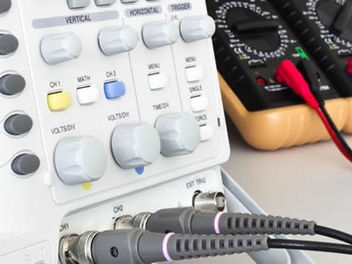Is the Landlord Or Tenant Responsible For EICR?
- Guy hudson
- Dec 11, 2023
- 4 min read
Navigating the landscape of rented accommodations demands a vigilant approach toward ensuring utmost safety, specifically in the realm of electrical installations. The partnership between landlords and tenants forms the bedrock for upholding these safety measures. Central to this safeguarding is the concept of the "EICR," or Electrical Installation Condition Report, a fundamental cornerstone ensuring the integrity of electrical systems within these spaces.
Within this dynamic environment of the private rented sector, the responsibilities regarding electrical safety and the upkeep of electrical installations are intricately intertwined between landlords and tenants. The EICR emerges as a critical assessment tool, acting as a guardian of safety standards within these living or working spaces.
In this exploration, we delve deep into understanding the multifaceted nature of EICR, uncover the distinct legal obligations incumbent upon both landlords and tenants and emphasise the indispensable role played by qualified professionals in upholding these standards. Beyond these obligations lie the imperatives of remedial work, an essential aspect in maintaining the safety and compliance of electrical systems in the private rented sector.
What is EICR and Why Does It Matter?
Electrical safety is paramount in any living or working space, and in the realm of rental properties, it's no different. EICR, or Electrical Installation Condition Report, is a comprehensive inspection conducted by qualified professionals to assess the condition of electrical installations within a property. This report ensures that the property complies with the necessary safety standards, guaranteeing the well-being of the occupants and the property itself.
In the private rented sector, the responsibility for ensuring electrical safety is distributed between landlords and tenants. It's crucial to understand the distinct roles each party plays to maintain compliance with the relevant safety regulations.
Ensuring Compliance: Landlord's Responsibilities
The landlord's responsibilities go beyond the mere provision of living space; they encompass the safety and well-being of tenants within their properties. This subsection delves deeper into the specific obligations that landlords must fulfil to ensure compliance with electrical safety standards.
Keeping Up with Regulations
Landlords must stay updated with the evolving electrical safety regulations governing rented accommodations. It's not merely about conducting a one-time inspection but ensuring periodic checks and compliance with the latest safety standards. Remaining abreast of any changes in legislation or safety guidelines is crucial to avoid potential legal implications.
Investing in Preventive Maintenance
Beyond mandatory EICR inspections, landlords should prioritise preventive maintenance of electrical installations. Regular checks on electrical appliances, such as ensuring the proper functioning of sockets, switches, and electrical panels, can mitigate potential hazards. Taking proactive steps to address minor issues can prevent more significant problems from arising and ensure the safety of the property and its occupants.
Mitigating Risks: Landlord's Investment in Safety
Landlords can proactively mitigate electrical risks in rental properties by implementing professional maintenance plans. These plans, overseen by qualified electricians, involve regular checks and servicing of electrical installations. Opting for such programs ensures properties adhere to the highest safety standards, preemptively addressing potential issues and hazards.
Additionally, landlords can contribute to electrical safety by educating tenants on best practices. Providing informational materials or organising brief sessions on safe electrical usage empowers tenants to take proactive steps in maintaining a secure living environment. Simple guidelines on using appliances safely, recognising warning signs, and handling electrical emergencies bolster tenant awareness and aid in accident prevention.
Tenant's Active Role in Electrical Safety
Tenants' involvement in maintaining electrical safety is not limited to cooperating during inspections; they also have an active role in upholding safety standards within their rented space. This subsection elaborates on the responsibilities tenants hold in ensuring a safe living environment.
Awareness and Reporting
Tenants must be aware of signs indicating potential electrical issues. Encouraging tenants to familiarise themselves with basic safety measures, such as not overloading sockets, unplugging appliances when not in use, and recognising warning signs like sparks or unusual odours, is crucial. Additionally, prompt reporting of any concerns to the landlord or property manager is essential to address problems swiftly.
Collaboration for Safety
Tenants and landlords should foster an environment of collaboration when it comes to electrical safety. Open communication channels and mutual understanding between both parties can facilitate smoother resolution of issues. Landlords should encourage tenants to communicate their concerns freely, while tenants should understand and respect the landlord's need to conduct scheduled inspections for everyone's safety.
Tenant's Empowerment: Engaging with Safety
Tenants wield significant influence in upholding electrical safety within their rented spaces. Providing them with resources and knowledge is key to fostering a proactive approach to safety.
Empowering Access to Safety Resources: Tenants should have immediate access to essential safety materials, including guides on electrical safety practices, emergency contact details for reporting faults, and clear instructions for handling potential electrical emergencies. Equipping tenants with this knowledge not only increases their awareness but also enhances their ability to swiftly address and report any safety concerns.
Collaborative Safety Reviews: Encouraging joint safety assessments between landlords and tenants establishes a shared responsibility for safety. Regular meetings dedicated to reviewing electrical safety measures within the property facilitate open discussions, enabling both parties to address concerns collectively and ensure that safety protocols are being diligently followed.
Conclusion
The shared responsibility between landlords and tenants in upholding electrical safety within rental properties cannot be overstated. Both parties must comprehend and actively fulfil their roles to adhere to electrical safety regulations. The regularity of EICR inspections carried out by qualified professionals stands as a crucial pillar in maintaining safety standards and averting potential risks.
In this endeavour towards safety, reputable services like Global Compliance stand ready to assist. With over 25 years of experience dedicated to electrical safety, their comprehensive services, trusted by leading schools, businesses, and agents, ensure compliance nationwide. From Portable Appliance Testing (PAT Testing) to Emergency Light Testing, their competitive pricing without compromising quality ensures a secure environment.
As we navigate the intricate terrain of rented accommodations, prioritising electrical safety becomes paramount. Regardless of your role—landlord or tenant—understanding and fulfilling your responsibilities significantly impact the overall well-being of all occupants. Let's join hands to sustain the primacy of electrical safety in the sphere of rental properties.
For expert assistance in ensuring electrical safety, contact Global Compliance at info@global-compliance.co.uk or call 0330 100 5341.

























Comments